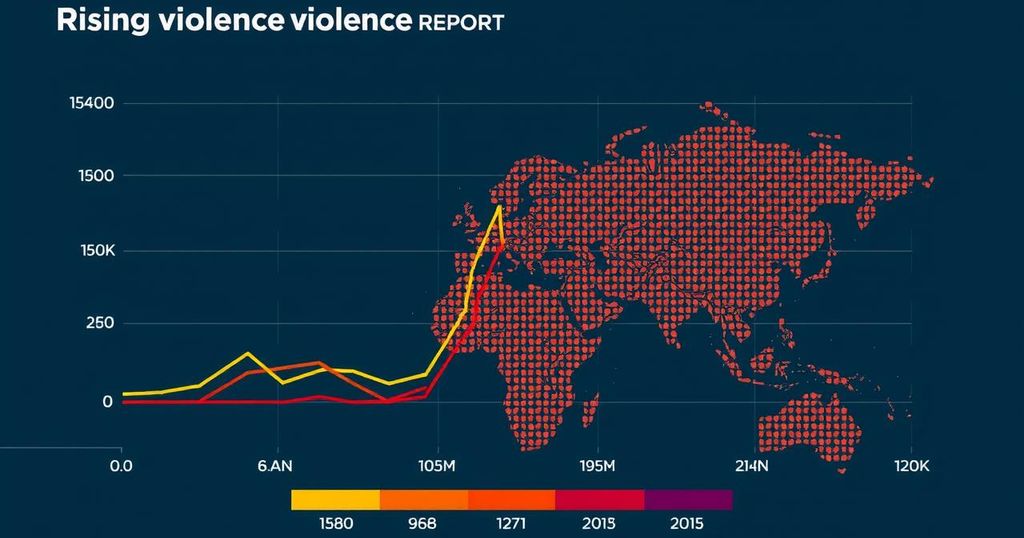The HRC’s report reveals a disturbing trend of fatal violence against transgender and gender non-conforming people, with 36 deaths recorded in past year, highlighting systemic inequalities faced, especially by Black trans women, and calling for urgent societal change and advocacy.
In the shadows of our society, the tragic epidemic of violence against transgender and gender non-conforming individuals continues to rise. The Human Rights Campaign (HRC) Foundation recently released its report highlighting the deaths of 36 transgender people since last year, driving the grim total to nearly 400 since it began tracking these incidents in 2013. This ongoing violence predominantly affects Black and brown trans women, whose lives are often overlooked and underreported.
The report, titled “The Epidemic of Violence Against the Transgender and Gender Non-Conforming Community in the United States,” aims to remember those lost and illuminate the urgent need for action. Amid a landscape fraught with harmful rhetoric and legislation that terrorizes these communities, the report outlines not just the numbers, but the human stories behind them, revealing lives cut short too soon.
Since 2013, HRC has documented the fatalities of 372 victims, with a majority being young and from marginalized racial backgrounds. Alarmingly, over 73% of these victims are Black trans women, showcasing the intersection of racism and gender-based violence that amplifies their risk. Similarly, firearm-related deaths account for nearly 70% of the reported incidents, indicating a grave public safety crisis that demands immediate attention.
Tori Cooper, Director of Community Engagement for the Transgender Justice Initiative, encapsulated the widespread issues faced by this community, stating that “The hate towards transgender and gender expansive community members is fueled by disinformation, rhetoric and ideology that treats our community as political pawns.” This stark realization compels us to take action to dismantle the cycles of violence that foster hate and discrimination.
Kelley Robinson, HRC President, echoes this sentiment, stressing the need for sustained advocacy. In light of this ongoing violence, including identified victims from the past year, the HRC calls for heightened awareness and engagement to ensure that the memories and rights of these individuals are not forgotten. Among the names listed are lives vivid with potential—each story a tapestry woven with dreams, talents, and aspirations obliterated by senseless aggression.
The Human Rights Campaign Foundation envisions a world where violence against the transgender and gender non-conforming communities is eradicated, emphasizing that the fight for equality is not just a mission but a necessity. Their comprehensive approach seeks to educate, empower, and uplift those affected while driving collective action through advocacy, fundraising, and community building.
Through the lens of the HRC’s report, we glimpse not only the sorrow vested in each statistic but the pressing urgency of fighting against hatred. Only together can we hope to weave the bright fabric of justice and acceptance, honoring those who have been lost through profound commitment to change.
The topic at hand illuminates the grim reality of fatal violence against the transgender and gender non-conforming communities in the United States. With an alarming increase in reported deaths and ongoing societal discrimination, this issue has garnered attention from advocacy groups like the Human Rights Campaign (HRC). The detailed report reflects trends in violence, particularly how certain demographic groups, especially Black trans women, are disproportionately affected by this epidemic, highlighting systemic injustices compounded by societal disdain and regulations targeting the LGBTQ+ community.
The HRC’s report showcases a dire need for change in addressing the escalating violence against transgender individuals. Emphasizing the lives lost and the societal factors propelling this epidemic, it calls for immediate action from allies and advocates alike. By amplifying these voices and committing to dismantling the cultures of violence, there lies the potential for a future where all can live without fear. The fight for justice continues, fueled by the memories of those tragically taken from us.
Original Source: www.hrc.org



